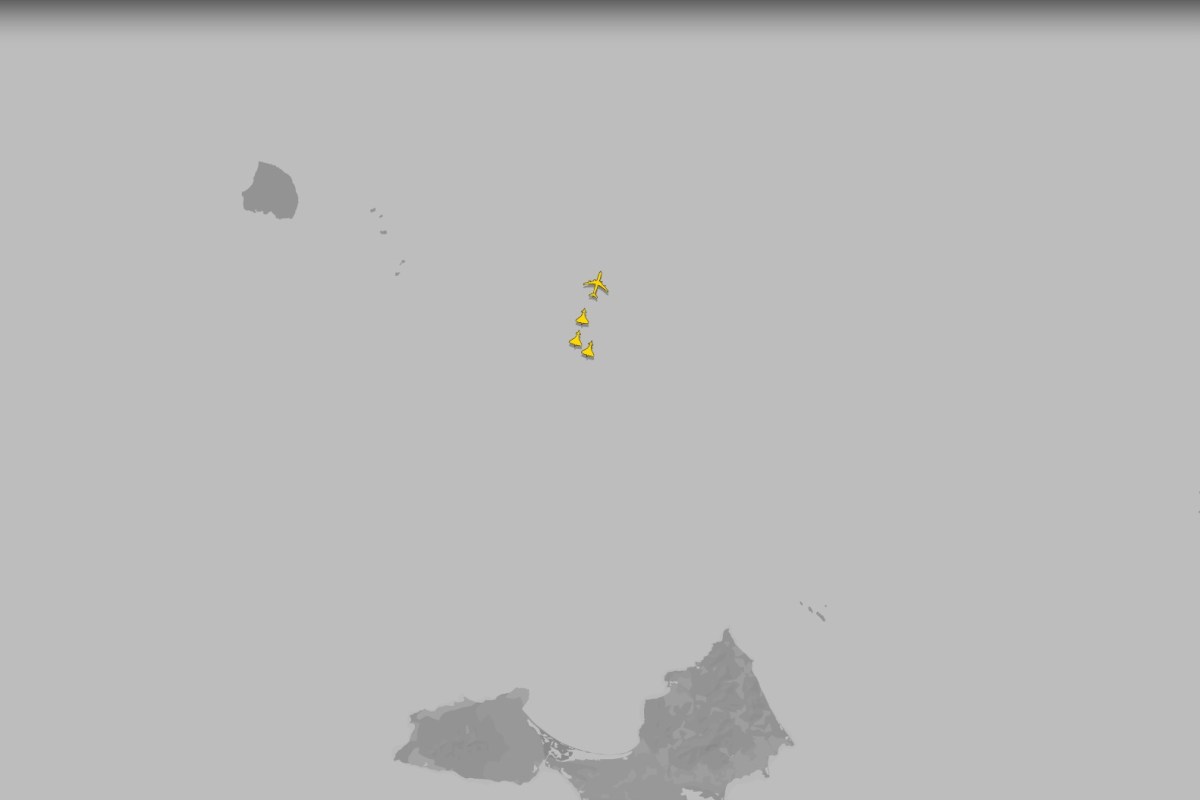A recent flight by a B-52 Stratofortress bomber over the Caribbean Sea, close to Venezuelan airspace, reflects a significant escalation in U.S. military activities in the region. This operation, captured through open-source flight-tracking data, is part of a broader strategy aimed at increasing pressure on the government of Venezuelan President Nicolás Maduro. The U.S. has deployed various combat aircraft near Venezuela, including F/A-18 Super Hornets and an RC-135 Rivet Joint.
Military Movements and Strategic Intent
The flight of the B-52, which was escorted by F/A-18s, marks its second mission in just five days, likely aimed at monitoring drug trafficking activities in the area. This operation is associated with Operation Southern Spear, a U.S. initiative focusing on disrupting illicit drug routes linked to Venezuela. On October 23, 2023, the U.S. formally designated the Cartel de los Soles, a network allegedly connected to high-ranking Venezuelan officials, as a terrorist organization.
This designation is a key component of the U.S. strategy to exert military pressure, which has grown under the administration of former President Donald Trump. The U.S. Southern Command (SOUTHCOM) is tasked with these operations, supporting the overarching goal of combating drug trafficking from Venezuela.
During a recent interview with One America News Network, Secretary of Defense Pete Hegseth emphasized the unmatched capability of U.S. forces to engage both on land and at sea. He issued a stark warning to traffickers: “Don’t get in a boat because it’s going to end poorly for you.” Hegseth also noted that the terror designation would provide the Pentagon with additional options to support the President’s decisions on military action.
Reactions from Venezuela
The Venezuelan government has responded strongly to the U.S. actions. Foreign Minister Yan Gil criticized the U.S. for what he termed an “erratic policy of aggression and threats,” asserting that such measures harm Caribbean nations and do not contribute to the fight against drug trafficking. He expressed that these actions are not supported by the U.S. public and are intended to pave the way for potential military intervention.
As the situation develops, Hegseth indicated that the U.S. is willing to apply sustained pressure similar to that used against extremist groups globally, if necessary within the Western Hemisphere. However, he refrained from confirming any specific plans for strikes on land targets inside Venezuela.
The intensification of U.S. military operations in the vicinity of Venezuela reflects a strategic pivot aimed at countering the Maduro regime and its alleged ties to drug trafficking. As military assets continue to mobilize, the implications for regional stability and U.S.-Venezuela relations remain significant.
